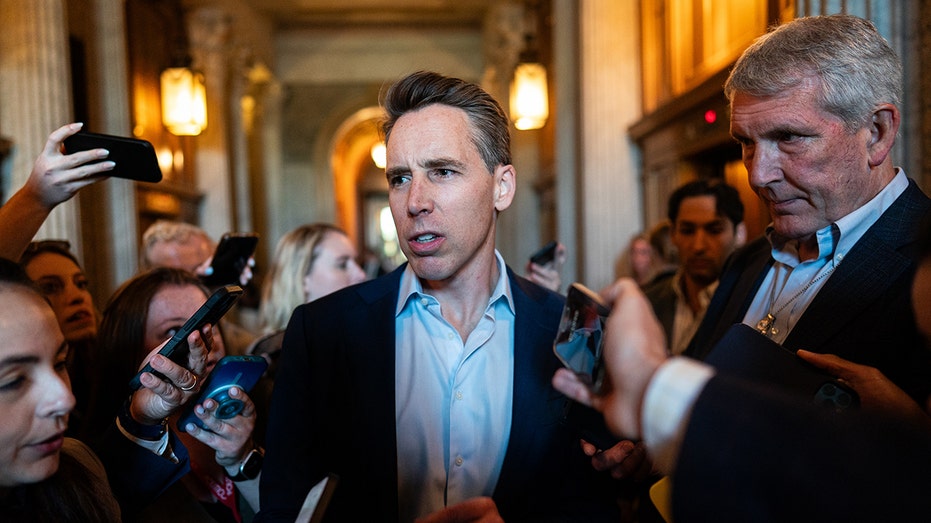Senator Hawley Clashes with UPenn Law Professor Over Judicial Injunctions Debate
Sen. Josh Hawley clashes with liberal law professor over surge in nationwide injunctions targeting Trump's executive orders.

During a heated Senate Judiciary subcommittee hearing on Tuesday, Sen. Josh Hawley, R-Mo., confronted University of Pennsylvania law professor Kate Shaw regarding the apparent surge in nationwide judicial injunctions against executive actions during former President Donald Trump’s term. Hawley presented data illustrating a sharp increase in such injunctions after the 2016 election, followed by a notable decrease during President Joe Biden’s administration. The exchange highlighted growing partisan tensions over the judiciary’s power and its perceived influence on executive policy.
“Now, you don't think this is a little bit anomalous?” pressed Hawley, questioning why the use of nationwide injunctions seemed to correlate directly with changes in presidential administrations rather than shifts in legal standards or constitutional interpretation. Hawley argued that the pattern suggested political motivations behind judicial decisions, particularly from Democratic-appointed judges, and asserted that the expansive use of these injunctions only emerged in recent decades.
Shaw, who previously served in the Obama White House Counsel’s Office, countered by suggesting there are substantive reasons behind the spike, including what she described as “much more lawless activity” under the Trump administration compared to previous presidents. She also criticized the historical framing of the debate, citing scholarship indicating that nationwide injunctions have existed since at least the early 20th century, though less frequently due to the federal government’s limited scope prior to modern times. “There’s many things that have changed in the last hundred or the last 50 years,” Shaw noted, pointing to the growing complexity of federal authority as a context for judicial intervention.
The debate quickly became personal, with Hawley accusing Shaw and other Democrats of supporting nationwide injunctions only when they oppose the sitting president. “How can our system of law survive on those principles?” Hawley asked, implying that selective support for injunctions would undermine the rule of law and judicial impartiality. He cited Shaw’s criticism of a Texas judge’s 2023 decision to block FDA approval of an abortion pill, contrasting it with her approval of similar injunctions against Trump-era policies.
“You said it was a travesty for the principles of democracy… Now you’re fine with all of that if it's getting the result that you want,” Hawley charged. Shaw replied that a lack of legal constraints on the presidency would be a dangerous precedent, maintaining her position that the circumstances and substance of executive action matter when considering judicial intervention.
The exchange underscores a larger national conversation about the proper role and reach of district court judges, particularly their authority to issue rulings that affect people and policies far beyond the parties in a single lawsuit. “Should judges, single judges, district court judges be able to bind nonparties who are not in front of them?” Hawley asked. “Let’s be consistent. I would just suggest to you our system of government cannot survive if it’s going to be politics all the way down.”
In response, Shaw emphasized the importance of checks and balances, stating that “democracy is not as simple as majority rule.” Still, the senator remained unconvinced, suggesting that nationwide injunctions have become merely another tool in the partisan legal arsenal. The hearing concluded without resolution, but both sides agreed that the underlying questions surrounding the judiciary’s power and its interaction with the executive branch remain far from settled.




